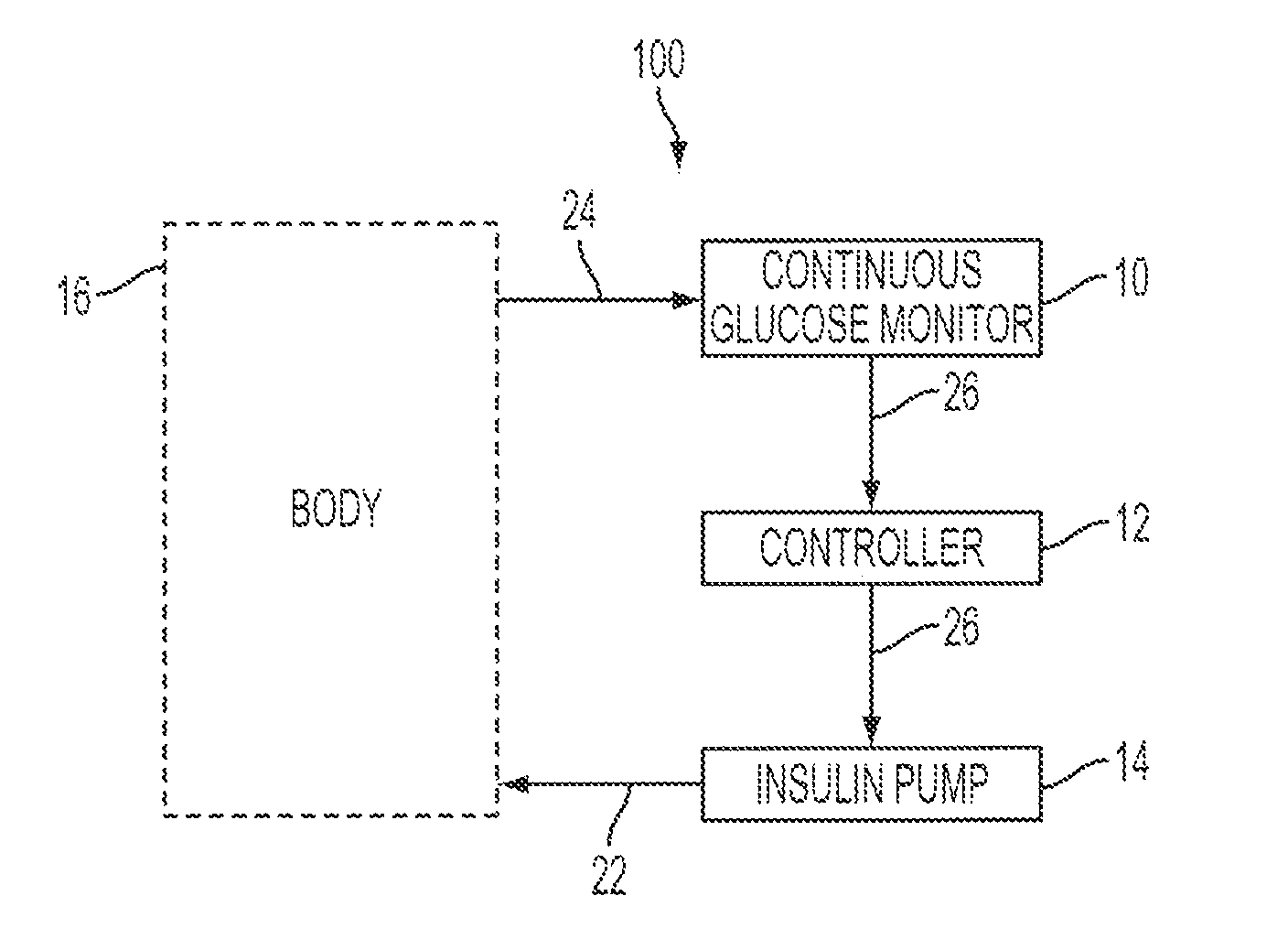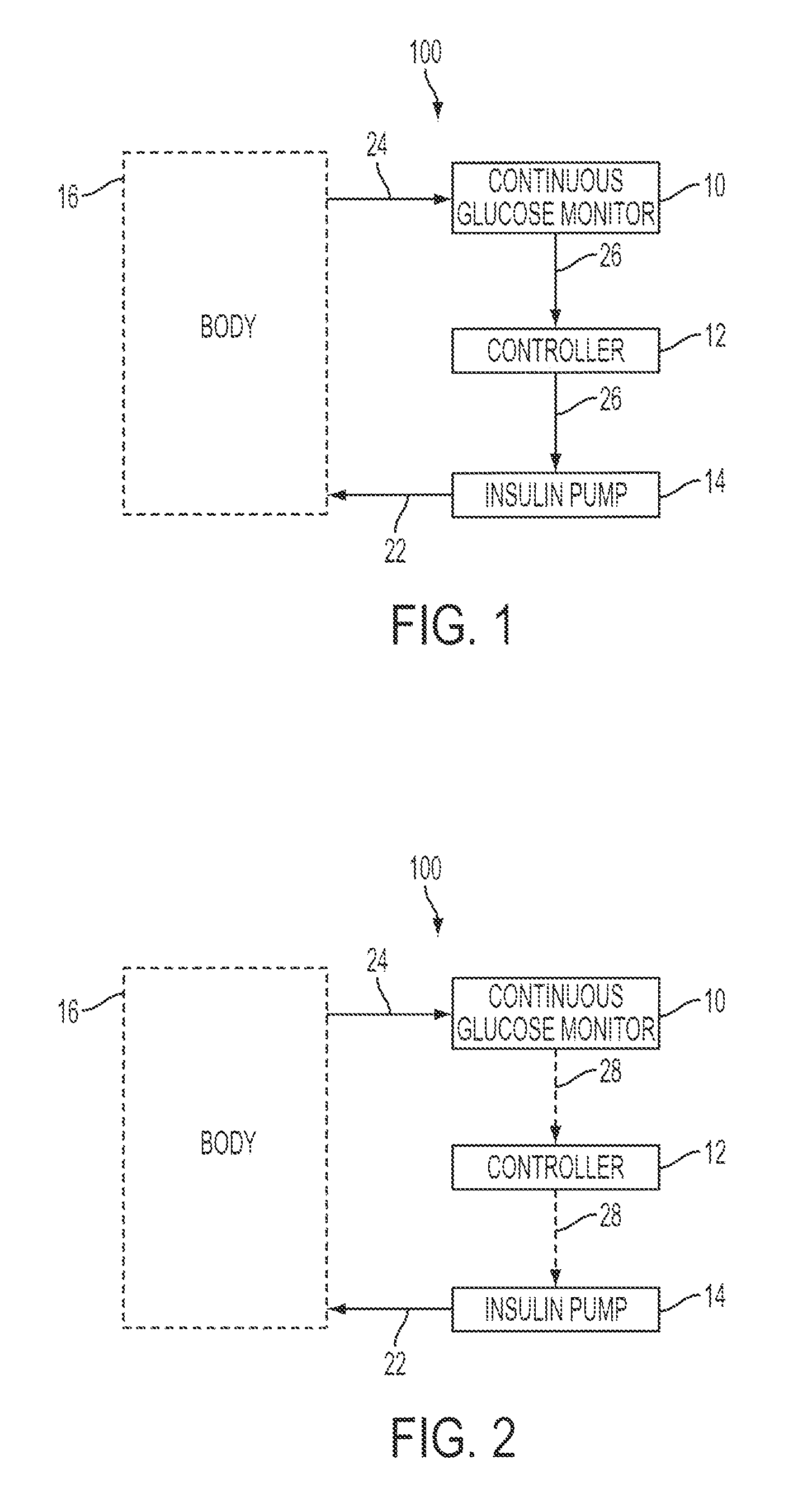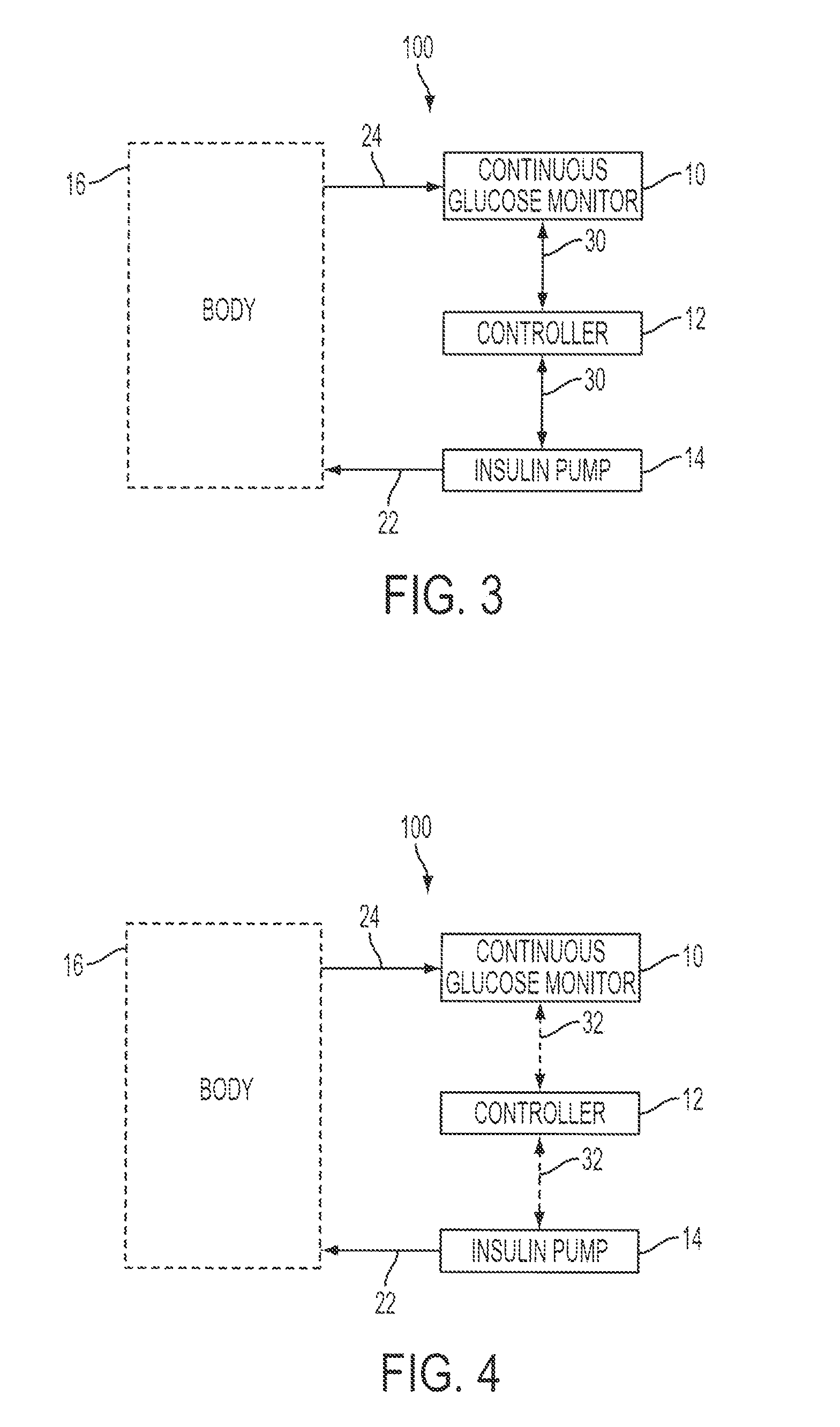Predictive control based system and method for control of insulin delivery in diabetes using glucose sensing
a glucose sensing and diabetes technology, applied in the field of diabetes glucose control, can solve the problems of reducing warning symptoms and hormonal defenses, reducing the risk of potentially life-threatening severe hypoglycemia (sh), and continuous sensors currently available experiencing delays estimated between 10 and 20 minutes, so as to avoid on-line optimization and safely regulate blood glucos
- Summary
- Abstract
- Description
- Claims
- Application Information
AI Technical Summary
Benefits of technology
Problems solved by technology
Method used
Image
Examples
examples and experimental
Results
[0055]Practice of the invention will be still more fully understood from the following examples and experimental results, which are presented herein for illustration only and should not be construed as limiting the invention in any way.
Concise Description of the Control Algorithm
[0056]Our control strategy has two main components. The first component, which entails patient assessment and individual tuning of control parameters, is done prior to a closed-loop control study using patient data collected during a screening. The second component, which entails controller warm-up and run-rime operation, includes initialization of controller state variables and run-time computation of insulin doses based on CGM measurements.
[0057]At the center of our control algorithm is a discrete-time, linear, model predictive control (MPC) law, with insulin commands taking the form of one-minute boluses (other longer or short durations may be applied as desired or required) applied every 15 minute...
PUM
 Login to View More
Login to View More Abstract
Description
Claims
Application Information
 Login to View More
Login to View More - R&D
- Intellectual Property
- Life Sciences
- Materials
- Tech Scout
- Unparalleled Data Quality
- Higher Quality Content
- 60% Fewer Hallucinations
Browse by: Latest US Patents, China's latest patents, Technical Efficacy Thesaurus, Application Domain, Technology Topic, Popular Technical Reports.
© 2025 PatSnap. All rights reserved.Legal|Privacy policy|Modern Slavery Act Transparency Statement|Sitemap|About US| Contact US: help@patsnap.com



